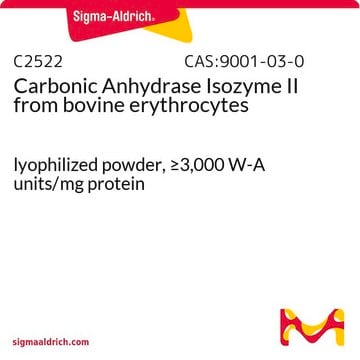F4381
Furosemide
≥98% (HPLC), powder, NKCC symporter inhibitor
Synonym(s):
4-Chloro-N-furfuryl-5-sulfamoylanthranilic acid, 5-(Aminosulfonyl)-4-chloro-2-([2-furanylmethyl]amino)benzoic acid
About This Item
Recommended Products
product name
Furosemide,
biological source
synthetic (organic)
Assay
≥98% (HPLC)
form
powder
mp
220 °C (dec.) (lit.)
solubility
acetone: 50 mg/mL, clear to slightly hazy, colorless to yellow
originator
Sanofi Aventis
storage temp.
room temp
SMILES string
NS(=O)(=O)c1cc(C(O)=O)c(NCc2ccco2)cc1Cl
InChI
1S/C12H11ClN2O5S/c13-9-5-10(15-6-7-2-1-3-20-7)8(12(16)17)4-11(9)21(14,18)19/h1-5,15H,6H2,(H,16,17)(H2,14,18,19)
InChI key
ZZUFCTLCJUWOSV-UHFFFAOYSA-N
Gene Information
human ... ALB(213) , CYP1A2(1544) , SLC12A1(6557)
Looking for similar products? Visit Product Comparison Guide
General description
Application
- to investigate the influence of timing of dexamethasone administration on auditory hair cell survival in mice
- to study its effect on intracranial pressure (ICP) after subcutaneous administration in rats
- as a stimulant for renin release and subsequent increase in plasma angiotensin II (ANG II)
Biochem/physiol Actions
Features and Benefits
Signal Word
Danger
Hazard Statements
Precautionary Statements
Hazard Classifications
Acute Tox. 4 Oral - Repr. 1B
Storage Class Code
6.1C - Combustible acute toxic Cat.3 / toxic compounds or compounds which causing chronic effects
WGK
WGK 2
Flash Point(F)
Not applicable
Flash Point(C)
Not applicable
Personal Protective Equipment
Certificates of Analysis (COA)
Search for Certificates of Analysis (COA) by entering the products Lot/Batch Number. Lot and Batch Numbers can be found on a product’s label following the words ‘Lot’ or ‘Batch’.
Already Own This Product?
Find documentation for the products that you have recently purchased in the Document Library.
Customers Also Viewed
Articles
Discover Bioactive Small Molecules for ADME/Tox
Discover Bioactive Small Molecules for ADME/Tox
Discover Bioactive Small Molecules for ADME/Tox
Discover Bioactive Small Molecules for ADME/Tox
Our team of scientists has experience in all areas of research including Life Science, Material Science, Chemical Synthesis, Chromatography, Analytical and many others.
Contact Technical Service













